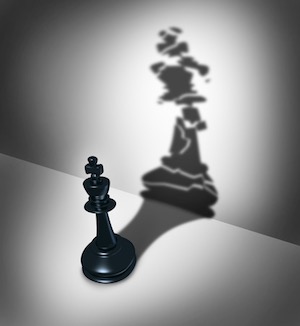I UNDERSTAND WHY the Prime Minister feels so strongly about “Hate Speech”. The events of 15 March 2019 are seared upon Jacinda Ardern’s memory. She will not, therefore, abandon lightly what she sees as a particularly effective means of preventing such horrors from ever happening again. It is also clear that the Prime Minister believes she has promises to keep to the victims of the Christchurch Mosque Attacks. From her perspective, legislating against “Hate Speech” is the most important way of keeping those promises.
She’s wrong, of course.
Prime Ministers cannot afford to take things personally. That may sound harsh and unfeeling, but it is, nevertheless, true. As the leader of this country, Jacinda Ardern has a responsibility to honour not just the pain and suffering of the victims of the Christchurch terrorist, but the pain and suffering of the generation of New Zealanders who battled against the most malign terrorist of all time.
Tens-of-thousands of young New Zealanders were killed or wounded in the global struggle against Adolf Hitler. One of the most precious things they were fighting to protect was the first thing Hitler and his fellow Nazis set out to destroy: the right of every human-being to think, speak and communicate freely.
The urge to suppress ideas and beliefs which contradict what one fervently believes to be the truth is not a healthy urge. It is a totalitarian urge. An urge to bend the whole world to your way of thinking. The great danger of succumbing to this urge is that you begin to see those who disagree with you as willful enemies of the truth. Confronted with their dissent, with their deliberate refusal to acknowledge what is self-evidently true, with their hate speech: what else can you do but make sure that the offenders are disciplined and punished?
Tragically, this is the direction in which the Royal Commission of Inquiry Into The Christchurch Mosque Attacks opted to steer the Government. Out of the terrorist’s mayhem, the Royal Commissioners were determined to bring forth what they called “Social Cohesion”. The people of New Zealand, they said, must be brought closer together, and in order for that to happen, all forms of speech which foster division, are insulting, create disharmony, and/or incite discrimination and hate, should be criminalised.
Had the Royal Commission restricted itself to recommending that language intended to incite hatred and/or violence against followers of the Islamic faith be outlawed, it is just possible that New Zealanders would have conceded the point. After all, if the law already forbids such expression in relation to ethnicity, then why not religion? In the dark shadow of the Mosque attacks, surely it would have been the least New Zealanders could do?
But, no. Restricting the extension of the existing law to cover religion was not deemed to be sufficient. The strengthening of New Zealand’s social cohesion would require the creation of a whole swathe of new “protected groups”. To bring the country together, the Royal Commission – and now, seemingly, the Labour Government – is intent on empowering the citizenry to send their neighbours to jail for up to three years for the “crime” of pissing them off.
One can only feel desperately sorry for the Police as women turn on men, Trans on TERFs, Maori on Pakeha, Christians on atheists, supporters of Palestine on supporters of Israel, Baby Boomers on Millennials, and Neoliberals on Marxists. The courts will be filled with angry and bitter complainants and defendants. Juries will be asked to solve problems philosophers have struggled with for centuries. Vast sums of money will be expended on lawyers. No one will emerge from the process emotionally unscathed. And all in the name of strengthening New Zealand’s social cohesion!
It won’t work, Jacinda. No matter how much you’d like it to; no matter how sincere all those promises you made to the victims. It won’t work. You need to listen to those who are warning you that the unintended consequences of this direct attack on the freedom of thought and expression, guaranteed to all New Zealanders in the Bill of Rights Act, will be huge.
Uniformity of belief and behaviour is Xi Jinping’s goal – it shouldn’t be Jacinda Ardern’s.
Freedom is unruly. It’s rude. It hurts people’s feelings. Makes them angry.
But people died for it, Jacinda.
Leave it alone.
This essay was originally published in The Otago Daily Times and The Greymouth Star of Friday, 2 July 2021.



